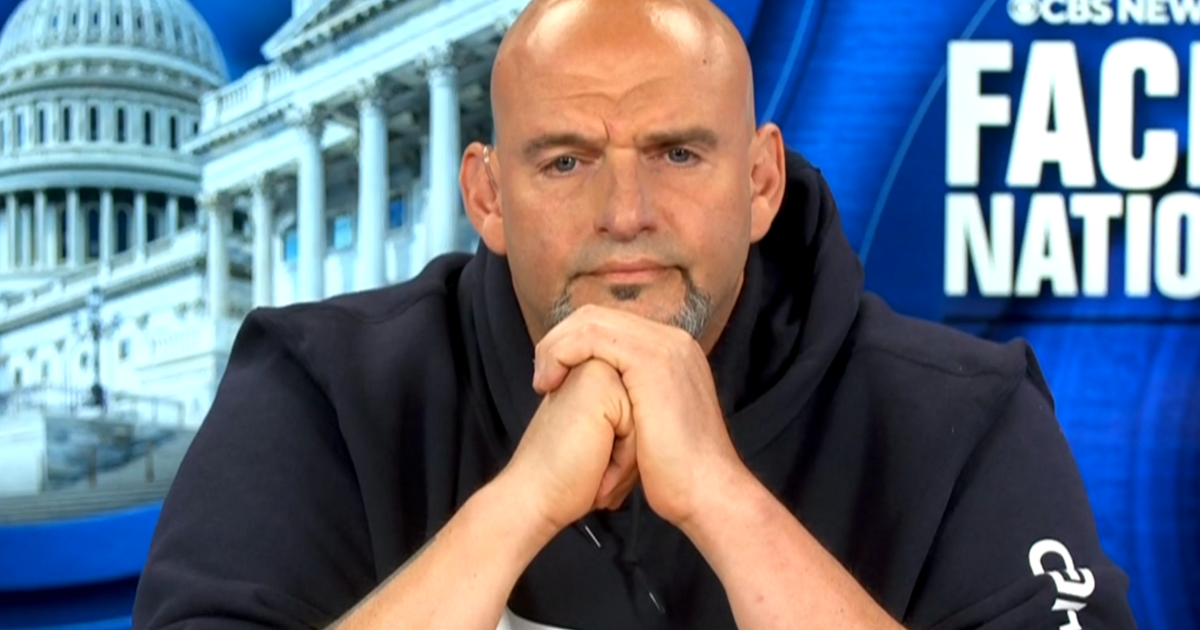Transcript: AdventHealth CEO Terry Shaw on "Face the Nation," July 12, 2020
The following is a transcript of an interview with AdventHealth CEO Terry Shaw that aired Sunday, July 12, 2020, on "Face the Nation."
MARGARET BRENNAN: Florida is one of the states now struggling to contain the virus. Yesterday, they reached a quarter million cases. The same day Disney World officially opened up two of their parks. One more example of the tension between reopening the economy versus the threat to Americans health. AdventHealth is the biggest hospital chain headquartered in Florida. Terry Shaw is its CEO and he joins us from Orlando. Good morning to you.
ADVENTHEALTH CEO TERRY SHAW: Good morning, MARGARET.
MARGARET BRENNAN: So you have about 30 hospitals in the state of Florida. You know, in other states in Arizona and Texas, there are these reports of morgues being close to being overwhelmed. Are you at that point in Florida?
SHAW: It's a very stressful time in- in Florida, MARGARET, but no, we're not at that point. I'm thankful that we've had several months to learn how to treat the disease. We're much better prepared in July than we were in March. We have adequate personal protective equipment. We have a stockpile of ventilators, and we have an amazing clinical team that have taken best practices from around the globe and put them into our treatment protocols. And I'll give you an example, our length of stay in our ICU for COVID patients has dropped in half. The number of people coming into our hospital with COVID that need a ventilator, we've also been able to cut that in half, and because of those things, our death rate has also been cut in half over that time period. This disease is only seven months and our clinical team has done an amazing job determining how to care for people better today than they were just even three months ago.
MARGARET BRENNAN: Well, the state of Florida has only just this Friday started reporting officially hospitalization data, but you know what you're seeing in your own facilities. So can you tell us, based on what you know when you think the peak of hospitalizations will be?
SHAW: Based upon the testing, my guess is that the peak is sometime in front of us and in July, and that would assume that people do what they need to do from both a distancing perspective and from a masking perspective to slow down the spread of the virus. COVID gets passed from one person to the next, and we can all do a better job making sure that we're caring for one another, by just wearing a simple mask and staying six feet from a distance perspective from the next person.
MARGARET BRENNAN: So do-- go--
SHAW: From a hospital--
MARGARET BRENNAN: I'm sorry--
SHAW: I'm sorry--
MARGARET BRENNAN: So from what you are laying out, do I hear you saying that you currently have enough supplies, PPE, you have enough medical staff to deal with the surge that you say is still in front of you?
SHAW: Yes. So in April- so March and April, we spent an enormous amount of money on PPE and we continue to have stockpiled PPE that we so desperately need right now. And so, no, we are not short on PPE. Remdesivir is also coming in. We just got a shipment in from the- from our state government this weekend. We were running low last week, but we have enough of that to continue to care for people. Our ICU capacities are running at about 85 to 90 percent, but we have the ability to turn some of our progressive care units in the ICU units if we need to do so. Also, as a multi-state system, we're working with one of our sister states in Colorado where we have facilities to bring clinicians from Colorado to Florida to help us staff up if we need to on an ongoing basis.
MARGARET BRENNAN: I wanted to ask you specifically about that, because back in the spring in New York, you saw that happen with medical personnel really being the thing most in demand and coming in from out of state. You-- are you calling for that? Do you need more personnel specifically? What do you need and on Remdesivir, which you just said you're about to get more of? How much supply do you have? How long does that last?
SHAW: So the Remdesivir that we have that I'm just talking about, we got in this weekend and we're supposed to get another shipment in this week. And at this juncture, I think we have enough as a system across our 30 hospitals to care for the people that would be coming into our- one of our facilities for care. Relative to staff, it's very important that you have the ability to move staff around your state. One of the things that we did in back in March was develop and program a staff redeployment program that allowed us to move critical resources around our organization with both within the state of Florida and then move people outside of the state of Florida-- to Florida or vice versa, based upon where spikes were coming and where people would be needed the most.
MARGARET BRENNAN: I was looking at some of the state reports on ICU capacity at your different facilities across the state. Disneyworld in Orlando. Many Americans now in the Orlando area and they reopened yesterday. I know your company has been hired by them to help advise on opening safely, but when I look at ICU availability in that area, it's pretty tight. Is it a good idea to open theme parks?
SHAW: So as a health care provider, my job is to help people do things safely. Whether it's NASCAR or Disney, we have strategic alliances with those organizations. We work very closely with them to help them determine a way to reopen and do that safely.
MARGARET BRENNAN: OK..
SHAW: I will tell you, based upon the way Disney is approaching this--
MARGARET BRENNAN: Yeah.
SHAW: --with limiting people in, doing all the screenings that they're doing, I'm- I personally am a Disney season ticket holder.
MARGARET BRENNAN: Yeah.
SHAW: I wouldn't hesitate to go to Disney as a healthcare CEO--
MARGARET BRENNAN: OK.
SHAW:-- based on the fact that they're working extremely hard to keep people safe.
MARGARET BRENNAN: All right. Thank you very much. Good luck to everyone working in your hospitals.



